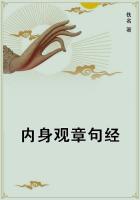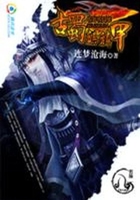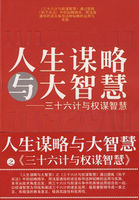THE EXPEDITION OF AMPHIARAUS (fragments)
Fragment #1 --
Pseudo-Herodotus, Life of Homer:
Sitting there in the tanner's yard, Homer recited his poetry to them, the "Expedition of Amphiarus to Thebes" and the "Hymns to the Gods" composed by him.
THE TAKING OF OECHALIA (fragments)
Fragment #1 --
Eustathius, 330. 41:
An account has there been given of Eurytus and his daughter Iole, for whose sake Heracles sacked Oechalia. Homer also seems to have written on this subject, as that historian shows who relates that Creophylus of Samos once had Homer for his guest and for a reward received the attribution of the poem which they call the "Taking of Oechalia". Some, however, assert the opposite; that Creophylus wrote the poem, and that Homer lent his name in return for his entertainment. And so Callimachus writes: `I am the work of that Samian who once received divine Homer in his house. Ising of Eurytus and all his woes and of golden-haired Ioleia, and am reputed one of Homer's works. Dear Heaven! how great an honour this for Creophylus!'
Fragment #2 --
Cramer, Anec. Oxon. i. 327:
`Ragged garments, even those which now you see.' This verse ("Odyssey" xiv. 343) we shall also find in the "Taking of Oechalia".
Fragment #3 --
Scholaist on Sophocles Trach., 266:
There is a disagreement as to the number of the sons of Eurytus.
For Hesiod says Eurytus and Antioche had as many as four sons;but Creophylus says two.
Fragment #4 --
Scholiast on Euripides Medea, 273:
Didymus contrasts the following account given by Creophylus, which is as follows: while Medea was living in Corinth, she poisoned Creon, who was ruler of the city at that time, and because she feared his friends and kinsfolk, fled to Athens.
However, since her sons were too young to go along with her, she left them at the altar of Hera Acraea, thinking that their father would see to their safety. But the relatives of Creon killed them and spread the story that Medea had killed her own children as well as Creon.
THE PHOCAIS (fragments)
Fragment #1 --
Pseudo-Herodotus, Life of Homer:
While living with Thestorides, Homer composed the "Lesser Iliad"and the "Phocais"; though the Phocaeans say that he composed the latter among them.
THE MARGITES (fragments)
Fragment #1 --
Suidas, s.v.:
Pigres. A Carian of Halicarnassus and brother of Artemisia, wife of Mausolus, who distinguished herself in war... (1) He also wrote the "Margites" attributed to Homer and the "Battle of the Frogs and Mice".
Fragment #2 --
Atilius Fortunatianus, p. 286, Keil:
`There came to Colophon an old man and divine singer, a servant of the Muses and of far-shooting Apollo. In his dear hands he held a sweet-toned lyre.'
Fragment #3 --
Plato, Alcib. ii. p. 147 A:
`He knew many things but knew all badly...'
Aristotle, Nic. Eth. vi. 7, 1141:
`The gods had taught him neither to dig nor to plough, nor any other skill; he failed in every craft.'
Fragment #4 --
Scholiast on Aeschines in Ctes., sec. 160:
He refers to Margites, a man who, though well grown up, did not know whether it was his father or his mother who gave him birth, and would not lie with his wife, saying that he was afraid she might give a bad account of him to her mother.
Fragment #5 --
Zenobius, v. 68:
`The fox knows many a wile; but the hedge-hog's one trick (2) can beat them all.' (3)ENDNOTES:
(1) This Artemisia, who distinguished herself at the battle of Salamis (Herodotus, vii. 99) is here confused with the later Artemisia, the wife of Mausolus, who died 350 B.C.
(2) i.e. the fox knows many ways to baffle its foes, while the hedge-hog knows one only which is far more effectual.
(3) Attributed to Homer by Zenobius, and by Bergk to the "Margites".
THE CERCOPES (fragments)
Fragment #1 --
Suidas, s.v.:
Cercopes. These were two brothers living upon the earth who practised every kind of knavery. They were called Cercopes (1)because of their cunning doings: one of them was named Passalus and the other Acmon. Their mother, a daughter of Memnon, seeing their tricks, told them to keep clear of Black-bottom, that is, of Heracles. These Cercopes were sons of Theia and Ocean, and are said to have been turned to stone for trying to deceive Zeus.
`Liars and cheats, skilled in deeds irremediable, accomplished knaves. Far over the world they roamed deceiving men as they wandered continually.'
ENDNOTES:
(1) i.e. `monkey-men'.
THE BATTLE OF FROGS AND MICE (303 lines)
(ll. 1-8) Here I begin: and first I pray the choir of the Muses to come down from Helicon into my heart to aid the lay which Ihave newly written in tablets upon my knee. Fain would I sound in all men's ears that awful strife, that clamorous deed of war, and tell how the Mice proved their valour on the Frogs and rivalled the exploits of the Giants, those earth-born men, as the tale was told among mortals. Thus did the war begin.
(ll. 9-12) One day a thirsty Mouse who had escaped the ferret, dangerous foe, set his soft muzzle to the lake's brink and revelled in the sweet water. There a loud-voiced pond-larker spied him: and uttered such words as these.
(ll. 13-23) `Stranger, who are you? Whence come you to this shore, and who is he who begot you? Tell me all this truly and let me not find you lying. For if I find you worthy to be my friend, I will take you to my house and give you many noble gifts such as men give to their guests. I am the king Puff-jaw, and am honoured in all the pond, being ruler of the Frogs continually.
The father that brought me up was Mud-man who mated with Waterlady by the banks of Eridanus. I see, indeed, that you are well-looking and stouter than the ordinary, a sceptred king and a warrior in fight; but, come, make haste and tell me your descent.'

